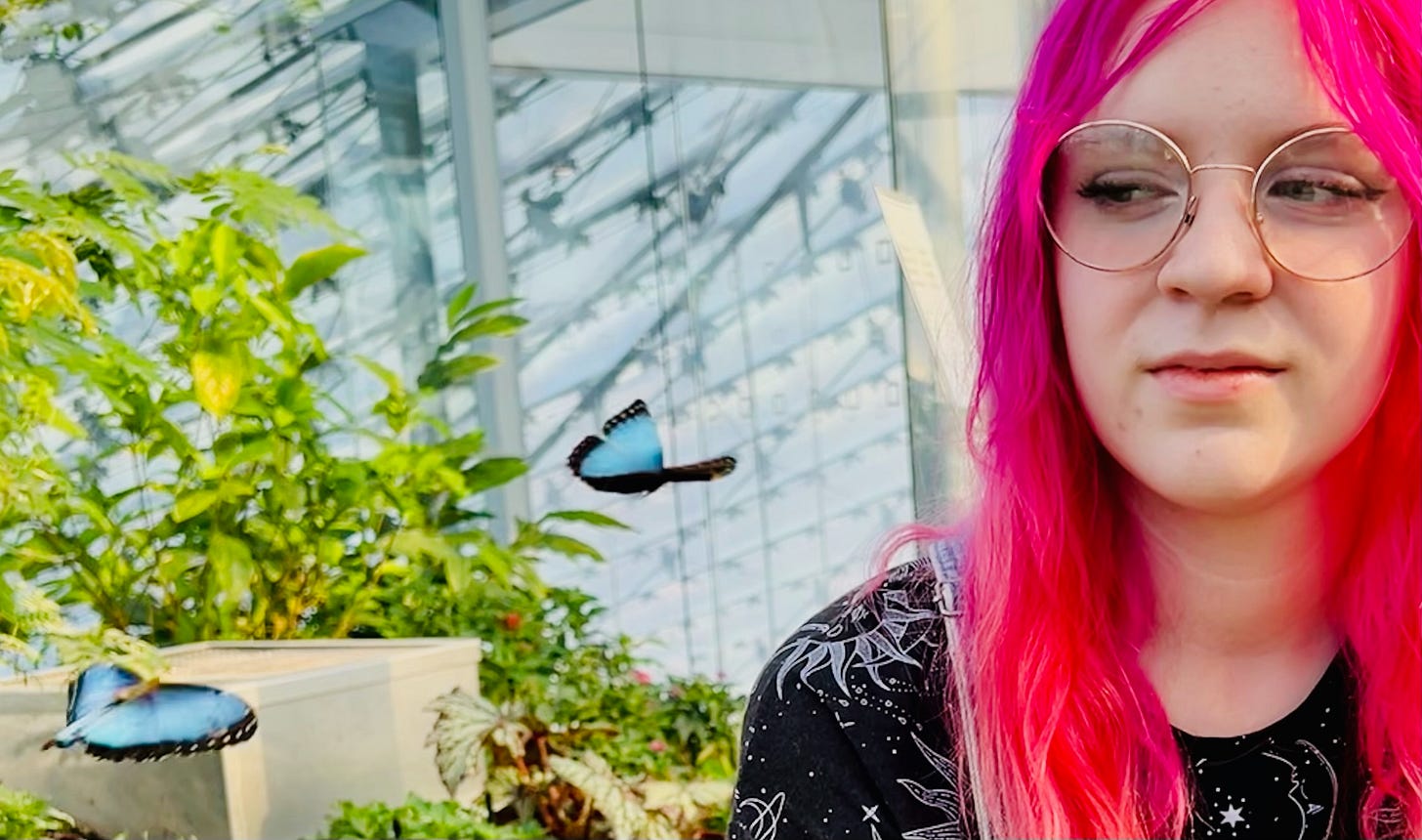
Earlier this month I was “on” a podcast for a writer whose work I’ve long admired: it was the pod Work Appropriate, hosted by Anne Helen Peterson. The theme of the show for that episode was My industry is failing: Academia edition, so you know I had to bite.
I submitted this question (which also offers a sneak peek into my upcoming dissertation’s focus):
Higher education often touts its "collegial processes," when in reality, much of it is driven under an individualized, performance-based model. Whether it’s reading my students’ course evaluations or competing with my departmental colleagues for merit raises, the academy is built on a flawed meritocracy, where the pursuit of individual success becomes the priority. As a result, we seek and value the "good opinion" of our students and colleagues, even when it comes at the expense of our values and beliefs. I used to think the problem was with me, but I now realize it lies within the system.
All around me, I can see how this performance mindset is unconsciously shaping our interactions and choices that we make within higher ed — which leaves me wondering: How can I navigate and survive within a system that runs counter to my values as an educator? How can I maintain my motivation when my colleagues view my successes as their competition, rather than as an opportunity to collaborate?
The answer the hosts provided was helpful, but what’s interesting is that the question answered BEFORE mine had a far bigger impact on my work life. This earlier question centered around another plague facing higher ed: overfunctioning.
The person behind the question was torn between remaining in their academic position — where they felt utterly unsupported in their work, quickly burning themselves out — OR switching to a different career that’s more lucrative and less stressful.
Sounds like a simple enough choice, but you’d be surprised how stuck you can be in a job whose work you love, while working in an environment that’s soul-destroying.
The crux of the question was this:
My manager at the university says she doesn’t think anyone else could do my job the way I do it. I’m completely overworked and I never take a day off. So my quandary is how long should I keep fighting to try to make the academy better?
Oh do I ever feel the pull of the last question.
Part of the response to the question has stayed with me, and I think it’s making me a happier person at work. The guest on the podcast was Dr. Dominique Baker, and her advice to feeling stuck (while doing meaningful work) is to tell yourself:
I’m special, but not THAT special.
She goes on to say that: “And it’s a difficult thing. I do not want to minimize that, but it is sort of almost a release to realize that you are not the only person on this planet who can do your job and do it well with thoughtfulness and integrity.”
The hosts talked about how it can be such a trap to think that you’re the only person who can do the work right. While I’m a big believer in finding your vocation, more and more I can see how institutions like to cash in on your good intention, to the point where the system completely consumes a person. I don’t want that person to be me.
So, I’m doing a gut check. I’m letting go of perfection and it’s slowly helping me be more content at my job. Before, I would lament and grieve at the way some things are, in part because “it doesn’t have to be this way.” But now that I know I’m special, but not THAT special, I can let go of the pressure to change the world on my own.
Ever since I’ve started to view life as a set of systems, it’s been both a liberating and discouraging revelation to process. I now see that it’s no longer only up to me to change the bad/ugly/unjust I see in the world, while at the same time, I also see how little of an impact I can actually have in shifting all the negative around me.
Rather than despair, I’ve been slowly re-adjusting my expectations and motivations at work. And I think it’s working. It’s helping me set better boundaries and say no, without feeling guilty. If something doesn’t get done “right” or even done well, I can let go of that disappointment and not take it personally.
It’s also keeping me more humble, because really — I am not all THAT special. I’m good, no doubt, but I need to let others have their shot too. (even if their ways aren’t remotely close to how I’d do things)
The other big step for me at work has been to find my place in an institution that doesn’t always fit. I’m a bit of an outlier at the University — I suppose having blue-green streaks at 45 doesn’t help. I know I can come across as “a lot,” and I’m trying to find the balance of knowing when I should say something, and when I should just observe and keep my thoughts to myself.
A big influence I’ve been considering lately is Dr. Cate Denial’s work on a “pedagogy of kindness” — but rather than applying it to my students, I’ve been working to use it more in my interactions with others on campus. There is a lot to get frustrated with on campus, so reminding myself to be kind has been another good mantra/gut-check for me to consider before opening my mouth.
I put this ideal to test the other day. I was in an instructors’ meeting with a bunch of colleagues, where the conversation inevitably shifted to a general bitch session about the state of students today skipping classes for no good reason. It’s an age-old troupe in the university: build common ground by demonizing the other.
The old Rebekah would have sat there silently, stewing in resentment, until I finally lost it enough to speak out. I hate this kind of “blame the student” talk, and I’m not a big fan of the motivation behind it — and the old me would want to set the record straight. But — that’s not kind. (or effective!)
When I finally did speak out in the meeting (because I had to), my contribution this time was different — maybe it wasn’t as apparent to the outside observer, but I felt a shift inside.
I spoke up for the struggling students in my classes. Earlier that same day, I had spoken with a student who is taking care of young children in her family while she’s juggling a full course load. I have another student whose mom has cancer. Other students are dealing with mental health issues or are being snowballed under a wave of coursework. I simply spoke to my experience — not to reprimand my colleagues, but to add in another voice to consider. I tried to be kind.
And while the conversation still was mostly negative, it felt good for me to speak my piece. It may not have changed much, but the change in me was enough. I’m not out to convert others to my POV, but at the same time — my ideas need to be out there and considered, too.
Baby steps. Here’s hoping I can learn more unconditional positive regard for the ones in my life who are the most frustrating.
Things that brought me joy over the last few weeks:
We’ve gotten out of SK! (which, believe me, isn’t easy these days) We took a trip over to Winnipeg for Reading Week, where we got to eat fancy donuts, visit an amazing conservatory, chill at a Nordic spa, and weep over at the Canadian Museum for Human Rights. It was a good trip for us three.

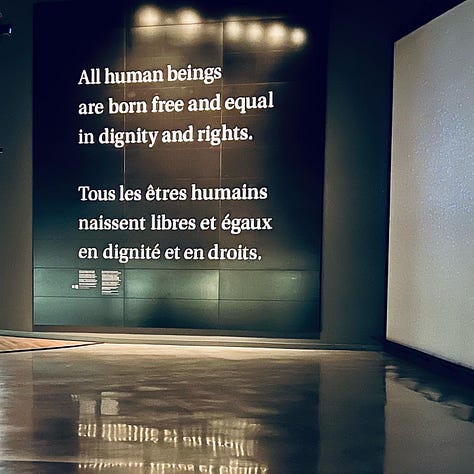

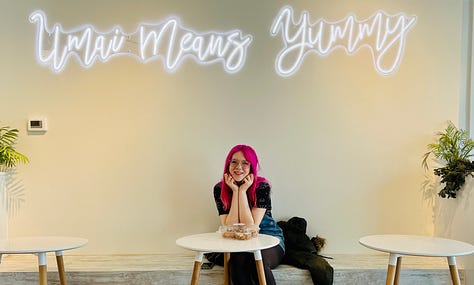
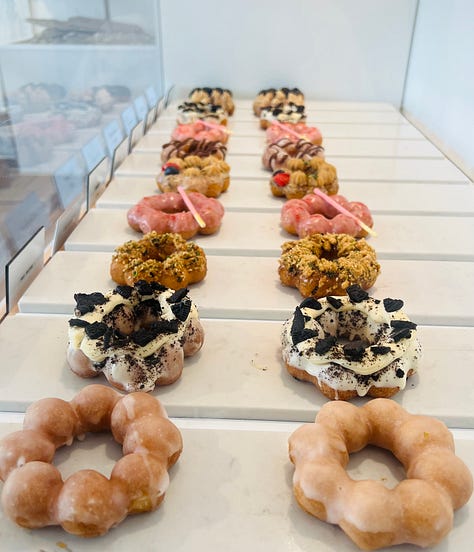



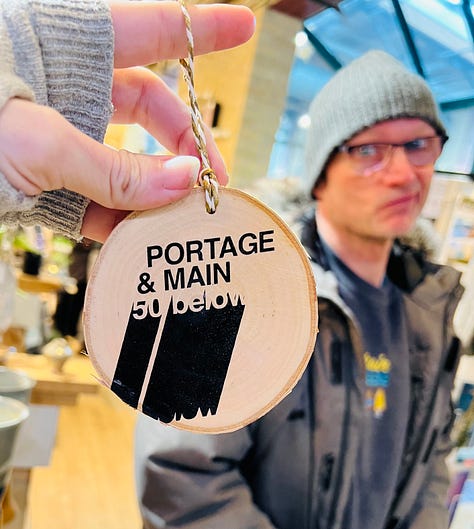
Danny and I also had a mini-trip to Edmonton last week to catch a show of Jason Isbell and the 400 Unit. We’ve tried to catch him multiple times over the years, including buying tickets for an epic Red Rocks show that the pandemic ruined. I’m happy to report we finally saw him, and he did not disappoint. Every one of his lyrics is a story in itself, and he is a killer guitar player. And yes, I got the teeshirt.
I’m about halfway through writing my dissertation proposal, and I’m excited about my work. The challenge ahead will be figuring out how to work my full-time job and my full-time work as a PhD candidate.
Oh! I had Carl’s Jr. twice in the past week. And it was GOOD.
Meme of the week:





